Having trouble viewing this email? Click here to open in your browser.
|
|
|
|
|
|
|
|
|
|
|
|
|
This Month in Mongolian Studies is a monthly listing of selected academic activities, resources and other material related to Mongolia. This list is based on information the ACMS has received and is presented as a service to its members. If you would like to submit information to be included in next month's issue please contact the ACMS at info@mongoliacenter.orgThis publication is supported in part by memberships. Please consider becoming a member of the ACMS, or renewing your membership by visiting our website at mongoliacenter.org/join. Thank you!
|
|
|
|
|
|
|
|
|
|
|
ACMS Announcements, News and Media References
|
|
|
FOLLOW-UP ANNOUNCEMENT ON 2019 LUCE/ACMS FIELD SCHOOL IN MONGOLIA
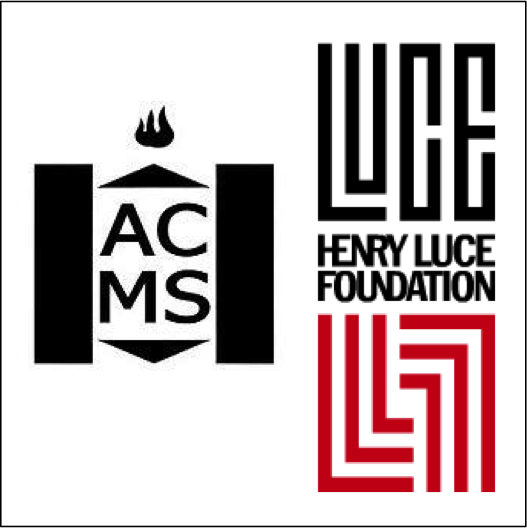 ACMS looks forward to planning and implementing next summer's Luce/ACMS Field School in Mongolia, with spaces for as many as 40 participants. Probable dates for the program will be late July through mid August (July 29 - Augustt 16). A number of scholarships will be available. ACMS looks forward to planning and implementing next summer's Luce/ACMS Field School in Mongolia, with spaces for as many as 40 participants. Probable dates for the program will be late July through mid August (July 29 - Augustt 16). A number of scholarships will be available.
Potential faculty include Charles Krusekopf (Royal Roads University): Julia Clarke (Nomad Science); Holly Barkus (Macalestar College); Mark Giordano (Georgetown University); and Darrin Magee (Hobart and William Smith College).
While faculty and graduate and undergraduate students are strongly urged to apply, invitations will also be extended to "non-traditional" participants with an interest or a background in Mongolia who wish to spend part of next summer in an academic context there.
Additional details will be made available later this fall. Announcements will also be made later this year regarding two other traditional ACMS summer programs -- the ACMS Summer Mongolian Language Program and the ACMS Summer Fellowship Program, used to fund independent research undertaken by both students and faculty.
**********************************************
2018 ACMS SUMMER MONGOLIAN LANGUAGE PROGRAM IN ULAANBAATAR CONCLUDES, PROVIDING INTENSIVE SUMMER LINGUISTIC AND CULTURAL EXPERIENCE FOR 5 STUDENTS FROM THE UNITED STATES AND FRANCE
Every summer, ACMS hosts an eight-week intensive Mongolian Language Program in Ulaanbaatar. This year's ACMS Summer Language Program began on June 11th and concluded on August 10th.
Five students from France and the United States successfully completed the intermediate-level Mongolian language course:
Alice Crowthier, Ecole pratique des hautes études, PhD student
Isaline Saunier, Ecole pratique des hautes études, PhD student
Kimberley Sanchez, University of Michigan, graduate student
Nathan Piazza, English Teacher at AMC in Taipei, Taiwan
Tanya Harrison, University of Hawaii, graduate student
The students were divided into different classes based on the level of their Mongolian language to ensure the optimum learning experience. Students spent three hours every day in the classroom refining their communicative competence through systematic improvement of reading, writing, listening and speaking skills.
In addition to the lessons, students also participated in supervised activities outside of the classroom, such as going to the movies, visiting the Parliament House, a cooking class, visiting museums and a day trip to a herding community outside of the city.
During the day trip, students experienced the nomadic way of living and were able to practice their Mongolian language skills with the herders while participating in archery, learning to make Mongolian dairy products and khuurshuur (traditional Mongolian food), and picking wild strawberries while hiking through the beautiful Mongolian countryside.
Outside of the lessons and activities planned by ACMS, the students were able to “live as a local” and participate in additional activities, such as excursions to the countryside, visiting the local markets, horseback riding, participating in Mongolia’s famous Naadam festival, attending cultural activities, and much more.
Applications for the 2019 Summer Language Program will be announced early next year. AMCS offers a limited number of fellowships to cover the cost of tuition. The goal of the program is to assist as many people as possible to participate in language training to enhance their ability to conduct research in Mongolia.
**********************************************
2018 NEH/ACMS SUMMER SEMINAR ON LEGACIES OF THE MONGOL EMPIRE CONCLUDES, PROVIDING 23 SCHOOL TEACHERS FROM ACROSS THE UNITED STATES WITH INTRODUCTION TO IMPORTANT ASPECTS OF MONGOLIAN HISTORY
The NEH-funded, ACMS-implemented summer seminar for K-12 teachers also concluded on August 10. Directed by Morris Rossabi and David Dettman and hosted by the University of Pennslvania in Philadelphia, the program attracted applicants from public and private schools from across the United States.
In addition to Professor Rossabi, speakers during the four-week seminar included Christopher Atwood, William Honeychurch, Timothy May, Mary Rossabi, Nancy Steinhardt, Daniel Waugh and Sunmin Yoon. Topics covered included "Enduring Legacies of the Global Mongol Empire" (July 16-20); "Expansion of the Mongol Regnum" (July 23-27); "Impacts on Global Culture and Society" (July 30-August 3); and "Enduring Legacies of a Global Empire" (August 6-10).
While focused on Mongolia, the program included pedagogical sessions, providing participants with opportunities to apply what they learned in the classroom. The program also included Mongolian-related films and involved field trips to the Metropolitan Museum and Rubin Museum in New York.
The 25 participating teachers were a diverse group, representing 15 different states including California, Connecticut, Florida, Iowa, Massachusetts, Minnesota, New York, Nebraska, New Jersey, Ohio, Oregon, Pennsylvania, Texas, Vermont, and Virginia.
Feedback from the participants was very complimentary with one participant stating that "I am so grateful to be in this program," adding that "It has been outstanding"
**********************************************
MEDIA REFERENCES
 ACMS Executive Director Jonathan Addleton's op-ed appeared in the Gainesville Sun (Florida), highlighting the potential positive benefits of the Third Neighbor Trade bill recently introduced into Congress by Congressman Yoho from Florida, chairman of the House Subcomittee for Pacific and Asian Affairs. A link to the op-ed is provided here. ACMS Executive Director Jonathan Addleton's op-ed appeared in the Gainesville Sun (Florida), highlighting the potential positive benefits of the Third Neighbor Trade bill recently introduced into Congress by Congressman Yoho from Florida, chairman of the House Subcomittee for Pacific and Asian Affairs. A link to the op-ed is provided here.
**********************************************
ACMS MEMBERSHIP RENEWALS
It is approaching that time of year again -- ACMS membership renewals generally follow our fiscal year of October 1st to September 30th. That means it may again be time for to renew your membership. If you are not already a member of the ACMS, please consider becoming a member.
ACMS Members are an important part of the governance of the organization, having voting rights to elect “At-Large” representatives of the Board of Directors for individual and student members and rights to nominate a representative on the Board of Directors for institutional members. The Board of Directors is the governing body of the organization, and it has complete authority over all programs and activities. Members, both individual and institutional, therefore have a direct stake in the future development of the organization.
Membership is open to individuals, corporations, and institutions that support the ACMS's mission of promoting scholarship in Mongolia, and dues go directly towards supporting the programmatic and administrative expenses of the organization. As a registered 501(c)3 non-profit, academic organization, membership dues and other donations paid to the ACMS are tax deductible in the United States.
For more information on member benefits and membership options, please see our membership page.
|
|
ACMS Sponsored Programs and Events
|
|
ACMS SPEAKER SERIES
Joseph Bristley: "The 'Festival of Forty Thousand Horses'": Number and Value in the Mongolian Countryside"
5:30 PM on Tuesday, September 4 at the American Corner, Ulaanbaatar Public LIbrary
 Since the end of state socialism in Mongolia, animal ownership has shifted from being largely collective-based to being vested in private households. Much attention has been given to how herding households strive to increase the size of their flocks. From this perspective, increasing the quantity of herd animals is seen as a response to contemporary conditions of economic risk, precarity and the self-sufficient nature of household economics. Since the end of state socialism in Mongolia, animal ownership has shifted from being largely collective-based to being vested in private households. Much attention has been given to how herding households strive to increase the size of their flocks. From this perspective, increasing the quantity of herd animals is seen as a response to contemporary conditions of economic risk, precarity and the self-sufficient nature of household economics.
This presentation examines quantitative increases in livestock from another point of view. It argues that such increases are values not just from an economic perspective but also in line with cultural systems of value that prize abundance and plenty and endow livestock with particular attributes. Seen from this angle, quantity becomes a means for valorising various pastoral qualities. I make this argument with references to a "Festival of Forty Thousand Horses" celebrated in rural Mongolia in 2025.
Joseph Bristley received his PhD in Anthropology from University College London (UCL) in 2017. His doctoral research studied pastoral economies in rural Mongolia. His research focuses thematically on economic anthropology, the anthropology of time and the anthropology of post-socialilsm. He is currently an affiliated researcher at UCL Anthropology's "Emerging Subjects" project.
**********************************************
William Taylor: "Recovering Mongolia's Frozen Past: Understanding Taiga and Alpine History through Ice Patch Archaeology"
5:30 PM on Tuesday, August 21 at the American Corner, Ulaanbaatar Public Library
 As former ACMS Fellow William Taylor noted in his lecture on August 21, "Among Mongolia's diverse landscapes and ecological zones, few have captured the imagination as much as the montane northern taiga -- homes to domestic reindeer herders and haven for many threatened wildlife species." As former ACMS Fellow William Taylor noted in his lecture on August 21, "Among Mongolia's diverse landscapes and ecological zones, few have captured the imagination as much as the montane northern taiga -- homes to domestic reindeer herders and haven for many threatened wildlife species."
Recent decades of archaeological researach in northern Mongolia's Darkhand region reveal that the landscape adjoining the taiga has been used for thousands of years and that these areas played an important role in the emergence of herding societies in eastern Eurasia. Some scholars hae even suggested the Mongolian taiga as an origin point for the initial domestication of reindeer in prehistory. However, the unique taiga environment has also left very few direct archeaological traces about how it was used by people in prehistory.
High altitude, persistent snow and ice patches may provide the first clues to early human use of taiga environments. These areas, which provide water, plants and heat relief in summer months, are important resources for both wild and domestic reindeer and other alpine animals. Ice patches also provide micro-environments that preserve environmental data, artifacts and evidence of ancient human ativityi.
As the climate warms, these patches and the information they contain are being rapidly lost, with devasting consequences for modern herders and our understanding of the taiga's past. At this lecture, Taylor presented preliminary results from 2018 archealogical investigations from montane ice patches in the northa taiga, exploring the implications for Mongolia's past and future.
Dr. Julia Clark is Dr. Taylor's research partner on this project, spending most of the summer conducting fieldwork in the taiga. She most recently served as ACMS Cultural Heritage Coordinator under its Luce-funded Cultural Heritage program. She is also the founder of NOMAD Science and an adjunt lecdturer at Flinders University in Australia. An anthropological arhaeologist, she has conducted research in Mongolia since 2007 and has just completed an Endeavor Fellowship in Australia aimed at improving Mongolian-Australian-US archaeological ties.
Dr. William Taylor is a posdoctoral research fellow at the Max Planck Institute for the Science of Human History in Jena, Germany. He received his doctoral degree from the University of New Mexico in 2017. His research explores human-enviornmental interactions, with a special emphasis on herding societies and animal domestication. He has conducted archaeological research in Mongolia since 2011 and is a three-time ACMS Research and Library Fellow.
**********************************************
ACMS FELLOW COMPLETES US-MONGOLIA FIELD RESEARCH FELLOWSHIP, SUBMITS FINAL REPORT IN RECORD TIME
Thanks to ACMS Field Research Fellow Alexander C. Diener who completed his Mongolia-based program in July, submitting an exceptional final report on his project in record time. Diener, Associate Professor in the Geography and Atmospheric Science Department at the University of Kansas in Lawrence, titled his project Axial Development and Eurasian Connectivity in Mongolia: Transportation Infrastucture, Urbanization and Socio-Economic Geographies of Emergent Mobilities.
As Dr. Diener's abstract notes, "Over the last decade, Mongolia's natural resoures have conferred relative strength upon its economy. But while a rising economic tide has benefited most of the population, market reforms and globalization are compounding various economic and population disparities." Diener also notes Mongolia's growing links to Northeast Asia and broader Eurasian economic networks including its engagement with China's New Silk Road initiative. Again citing the abstract, the project "applies mobilities, development, spatial science, transport and economic geography literatures to assess current levels and prospects of Mongolia's integration in such such trans-regional systems".
Dr. Diener participated in the June ACMS Conference on Mongolian Heritage sponsored by the Henry Luce Foundation, resulting in further conversations with various scholars. While in Mongolia he partnered with Dr. Batbuyan Batjav and the Center for Nomadic and Pastoralism Studies (CNPS), accessing statistical data from the Mongolian Statistics Office and other relevant information from the Ministry of Transportation. He also reconnected with Mongolian National University and conducted interviews in the countryside, gathering drone footage for 3D modeling of specific settlements.
Anticipated outcomes include journal publications and follow-on research proposals. Aspects of the fieldwork will also be incorporated into several courses offered at the University of Kansas this year including Understanding Central Eurasia (Fall 2018); World Regional Geography (Spring 2019); and a graduate seminar on Human Mobility and Place Attachment (Spring 2019). Following his trip to Mongolia, Dr. Diener visited the Mongolian and Inner Asian Studies Unit at Cambridge University in the UK, presenting the results of his work at their weekly seminar while further facilitating opportunities for possible further cooperation.
Dr. Dieners's final report contains a number of useful suggestions for strengthening the ACMS Summer Fellowship program. Among other things, he complimented ACMS on "being eminently professional and productively non-invasive". He also noted that in terms of potential research funding, Mongolia often falls between prospective Eurasia Post Soviet sponsors who view it as part of East Asia and possible East Asia research sponsors who consider it part of the post Soviet space. Against this backdrop, "The US-Mongolia Field Research Fellowship Program sponsored by ACMS, CAORC and the Department of Education, is therefore absolutely essential . . . without this funding, it would be extremely difficult to garner pilot data to support foundational publications and advance applications for larger research grants from other sources".
Again, ACMS wishes to thank Dr. Diener for his innovative and pioneering project as well as his timely and useful feedback at a time when obtaining academic funding for such work is more challenging than ever.
|
|
|
|
|
|
US PhD CANDIDATE SEEKS COOPERATION WITH MONGOLIAN GRADUATE STUDENT
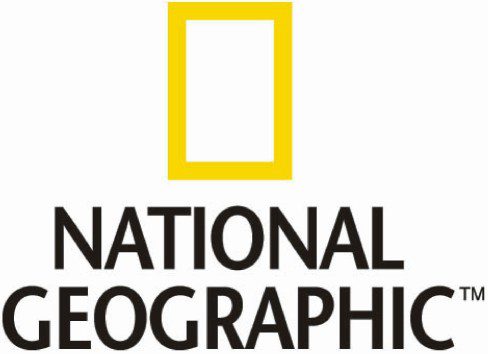 Former ACMS Fellow Eduardo Hazera writes: "I am a Cultural Anthropology PhD student at the University of Texas at Austin and I am currently applying for a National Geographic Early Career grant. I am looking for a Mongolian graduate student who would like to collaborate with me on this grant. The research will focus on how climate change and mining are impacting herding. And the fieldwork will take place next summer. Ideally, we will write the grant together and then next year we will spend a few weeks doing field research together. If you are a Mongolian graduate student and you are interested in collaborating, please send me an e-mail at: ehazera@utexas.edu. Former ACMS Fellow Eduardo Hazera writes: "I am a Cultural Anthropology PhD student at the University of Texas at Austin and I am currently applying for a National Geographic Early Career grant. I am looking for a Mongolian graduate student who would like to collaborate with me on this grant. The research will focus on how climate change and mining are impacting herding. And the fieldwork will take place next summer. Ideally, we will write the grant together and then next year we will spend a few weeks doing field research together. If you are a Mongolian graduate student and you are interested in collaborating, please send me an e-mail at: ehazera@utexas.edu.
|
|
Research Fellowships, Scholarships and Grants |
|
NO RESEARCH FELLOWSHIP ANNOUNCEMENTS RECEIVED FOR THIS MONTH
|
|
|
|
|
UNIVERSITY OF PENNSYLVANIA OFFERS FALL LANGUAGE COURSE IN MONGOLIAN
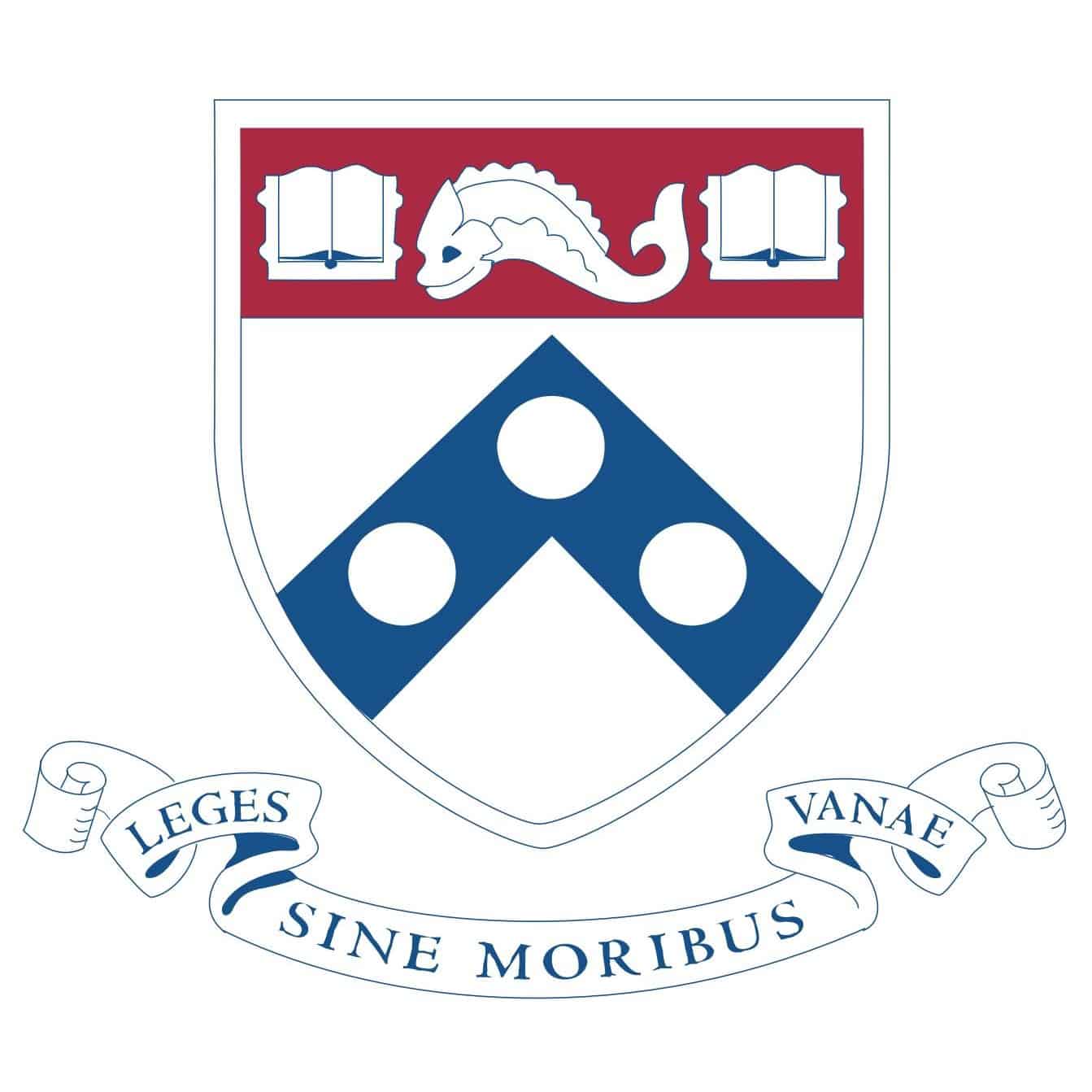 The University of Pennsylvania in Philadelphia recently announced that it will be offering a Mongolian language course this fall -- "The language of Genghis Khan, in the alphabet of the Soviet Union, spoken in a new democracy"! O. Dashdulam ("Straight out of the Gobi") will serve as Instructor. This welcome news further strengthens UPenn's already significant engagement with Mongolia in the United States. The University of Pennsylvania in Philadelphia recently announced that it will be offering a Mongolian language course this fall -- "The language of Genghis Khan, in the alphabet of the Soviet Union, spoken in a new democracy"! O. Dashdulam ("Straight out of the Gobi") will serve as Instructor. This welcome news further strengthens UPenn's already significant engagement with Mongolia in the United States.
**********************************************
AMERICAN CHAMBER OF COMMERCE (AmCham) ANNOUNCES FALL CERTIFIED TRADE MISSION TO MONGOLIA
 The American Chamber of Commerce in Mongolia (AmCham) -- in coopertion with the US Department of Commerce and the US Embassy in Mongolia -- is organizing a Certified Trade MIssion to Ulaanbaatar from October 14-20, 2018. The American Chamber of Commerce in Mongolia (AmCham) -- in coopertion with the US Department of Commerce and the US Embassy in Mongolia -- is organizing a Certified Trade MIssion to Ulaanbaatar from October 14-20, 2018.
The purpose of the MIssion is to explore opportunities in the Mongolian market. The program will include meetings with senior government officials, lunches with trade associations and business leaders, site visits, networking, matchmaking with Mongolian business leaders and a reception at the US Ambassador's residence. The application deadline is September 20, 2018.
For more details, contact the following:
Mr. Adiya Oyungerel (AmCham): adiya@amcham.mn
Mr. Michael Richmond (US Embassy): ulaanbaatar-econ-comm@state.gov
Ms. Zhen Gong-Cross (US Dept. of Commerce): zhen.gong-cross@trade.gov
**********************************************
INNER MONGOLIAN UNIVERSITY ANNOUNCES "FIRST INTERNATIONAL SYMPOSIUM ON THE SECRET HISTORY OF MONGOLIA"
ACMS received an announcement from Inner Mongolian University regarding the First International Symposium on The Secret History of the Mongolia, scheduled for September 15-17, 2018
Areas covered include language and literary studies; history and cultural studies; and philological and bibliographic studies. The program will be held at the Jingdu Hotel in Lindgong Town, Inner Mongolia China.
Participation is free. The program will be in Mongolian, Chinese and English. Transportation can be arranged from Hohot. Some of the papers should eventually be published in the Inner Mongolian University Journal.
Information provided to ACMS does not include a website. However it does list two phone contact points:
Wu Yinghe: 86-18647109242
Ying Hong: 86-131906000098
**********************************************
OPPORTUNITY TO JOIN NEW NETWORK FOCUSED ON ARCHAEOLOGICAL DATABASES AND PUBLIC POLICY
 Jeff Altschul sends the following notice that may be of interest to ACMS members, especially those involved in archaeology and public policy: Jeff Altschul sends the following notice that may be of interest to ACMS members, especially those involved in archaeology and public policy:
"My wife and I sold the company we founded 35 years ago, Statistical Research, Inc. (SRI) at the end of last year. I guess we are retired, but neither one of us has figured out what exactly that means. As some of you know, I recently co-founded an organization named the Coalition for Archaeological Synthesis (CfAS). CfAS is designed to leverage the immense archaeological database collected largely in response to development to address questions requiring a deep time perspective and which can affect public policy. I hope all of you will join as Associates (it’s free). Just go to this link and click on Associate": www.archsynth.org
If interested, feel free to also contat Jeff directly: jhaltschul@canelogroup.net
**********************************************
RESEARCH QUERY ON "REMNANTS" OF ANCIENT PRE-BUDDHIST RELIGIONS IN SIBERIA, MONGOLIA, TIBET OR ELSEWHERE
Charles Weller (Washington State University and Georgetown University) writes the following:
I am wondering if anyone can point me to sources discussing (alleged) "remnants" of ancient pre-Buddhist religions in Siberia, Mongolia, Tibet, or elsewhere across Asia? I am especially interested in any pre-19th century sources, particularly any debates which used the concept of "pre-Buddhist remnants" (cf also "survivals," "vestiges" or "relics) as a means of calling for either purification of Buddhism as the true, superior religion or return to an original, ancient, native tradition which frames Buddhism as a "foreign" intruding, imperialist faith of sorts.
But regardless of how and why it is done, I would appreciate any references to distinctions made between "pre-Buddhist" and 'Buddhist traditions. Again, pre-19th century would be best but 19th and/or 20th-21st sources are welcome as well.
I already know of John Myrdhin Reynolds, Yungdrung Bon - The Eternal Tradition: The Ancient Pre-Buddhist Religion of Central Asia and Tibet: Its History, Teachings and LIterature (Bompo translation Project 1991). Further references would be appreciated.
Charles Weller
rc.weller@wsu.edu
*********************************************
DOCUMENTARY ON CONTEMPORARY MONGOLIAN MUSIC:
LIVE FROM UB:
 The independent documentary Live from UB, produced by Lauren Knapp, is now available for distribution to academic, student and other audiences via this website. The independent documentary Live from UB, produced by Lauren Knapp, is now available for distribution to academic, student and other audiences via this website.
Providing an innovative take on post Soviet Mongolia, it looks at developments from the perspective of Mohanik, one of the country’s promising independent bands as they create a “new sound” for their country as part of their efforts to “discover what it means to be Mongolian today”. Just as rock music beginning in the 1970s was the catalyst for reaching out to the the world while also pushing the bounds of freedom, during the post Soviet period it became a medium for Mongolian nationalism as well as Mongolian efforts to come to terms with a very different country, one both influenced by and influencing broader trends toward globalization.
According to the Live from UB outreach material, “Musicians are incorporating different aspects of Mongolian tradition back into their music. Rappers have a backing band of traditional instrumentalists. Groups are coupling ancient tunes with hard rock treatment. And pop stars are wearing traditional garb when they perform at home and abroad”.
Depicting an often overlooked aspect of contemporary Mongolia, Live from UB focuses on the story of one band to weave a larger narrative, one that involves Mongolians embracing their own unique heritage while also embracing the world, fueled in part by the idea that Mongolia, once a global actor to be reckoned with, will “once again be a great force in the world”.
Lauren Knapp is a nonfiction storyteller working in documentary film, radio, television and 360. Her stories have been featured on the The New York Times, PBS NewsHour, NPR, PRI’s The World, The Atlantic, and TIME among others. Her first feature documentary Live From UB, follows the trajectory of Mongolia’s contemporary political and social transitions through the lens of its rock musicians. She directed it with the support of a Fulbright Fellowship in Ulaanbaatar, Mongolia. She is focused her lens on social issues ranging from capital punishment to lockdown drills to fair chance employment.
Her current project, Passage, documents four women’s experience of transitioning into motherhood with a focus on how access to resources and support affect her experience. When she’s not in the field or edit room, she’s in the classroom. She has taught at Georgetown University, Northwestern University, Stanford University and George Mason University. Lauren holds a Bachelor’s degree in anthropology from Grinnell College and a Master of Fine Arts degree in Documentary Film and Video from Stanford University.
|
|
|
|
|
The Mongols and the Islamic World: From Conquest to Conversion by Peter Jackson; 640 pages; hardcover; $40 (Yale University Press, 2018)
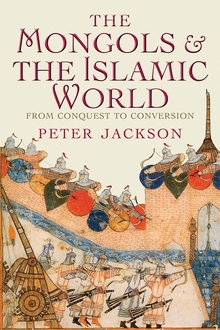 Described by publisher Yale University Press as "an epic historical consideration of the Mongol conquest of Western Asia and the spread of Islam during the years of non-Muslim rule," this book provides a "fresh and fascinating consideration of the years of infidel Mongol rule in Western Asia, drawing from an impressive array of primary soures as well as modern studies to demonstrate how Islam not only survived the savagery of the conquest, but spread throughout the empire". Described by publisher Yale University Press as "an epic historical consideration of the Mongol conquest of Western Asia and the spread of Islam during the years of non-Muslim rule," this book provides a "fresh and fascinating consideration of the years of infidel Mongol rule in Western Asia, drawing from an impressive array of primary soures as well as modern studies to demonstrate how Islam not only survived the savagery of the conquest, but spread throughout the empire".
Focusing less on the conquests and more on what followed, the book assesses the history of a part of the world that now includes Iran, Iraq, Turkey and Afghanistan as well as the various countries of Central Asia and parts of Eastern Europe. It also examines both the Muslim experience of Mongol sovereignty and the later conversion of descendants of the Mongol conquers to Islam.
Peter Jackson is emeritus professor of medieval history at Keele University. He has written previously on the Crusades, the eastern Islamic world and the Mongols. His previous books include The Mongols and the West, 122101420. He lives in Staffordshire, UK.
*********************************************
Archaeological Research in Asia (Volume 15 - September 2018, pp. 101-109)
 The latest issue of Archaeological Research in Asia includes an article by Petya V. Andreeva and Christopher Atwood entitled "Camp and Audience Scenes in Late Iron Age Rock Drawings from Khawtsgait, Mongolia". According to the abstract: The latest issue of Archaeological Research in Asia includes an article by Petya V. Andreeva and Christopher Atwood entitled "Camp and Audience Scenes in Late Iron Age Rock Drawings from Khawtsgait, Mongolia". According to the abstract:
"Previous studies of petroglyphs in Mongolia have focused on the abundant Bronze Age examples. Recently, however, in the Khawtsgait site in southern Mongolia, two petroglyphs have come to light representing a major departure from Bronze Age examples in subject, mode of representation and parallels with funerary art. One depicts a nomadic camp scene head on, the other presents what seems to be a scene about an altar with a seated figure, possibly female, and standing figures. Relatively closer parallels to these figures exist in art found in funerary contexts particularly in Xiongnu sites and the Pazyryk tombs in the Russian Altai. Together with these finds, the Khawtsgait site provides new evidence of Iron Age material culture in funerary beliefs, along with the continuing links of the Mongolian plateau with the steppe west of the Altai".
*********************************************
Buddhism, Law & Society (Volume 2 — 2016 - 2017), edited by Rebecca Redwood French
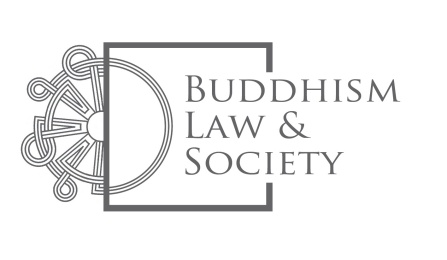 The latest issue of Buddhism, Law and Society includes one article specifically on Mongolia. Written by Vesna A. Wallace and published under the title “The Interface of Mongolian Nomadic Culture, Law and Monastic Sexual Morality”, it is described as follows: The latest issue of Buddhism, Law and Society includes one article specifically on Mongolia. Written by Vesna A. Wallace and published under the title “The Interface of Mongolian Nomadic Culture, Law and Monastic Sexual Morality”, it is described as follows:
“In traditional Mongolian nomadic society, which had its own culturally embedded dimensions of sexuality and highly flexible rules regulating social life, the monastic institutionalization of sexuality was a long process that has been met with resistance to this day. Mongolian Buddhists’ lenient attitude toward sexual desire also found its support in the Buddhist tantric teachings, as it has been often pointed out by contemporary monks in Mongolia in their response to the critics of their sexual conduct. A study of various laws instituted in Mongolia from the seventeenth to the early twentieth centuries reveals a variety of ways in which different governing bodies sought to negotiate the problem of monks’ sexual misconduct through their prohibitive and penal measures”.
*********************************************
Language, Media and Globalization in the Periphery: The Linguascapes of Popular Music in Mongolia by Sender Dovchin; 168 pages; hardback: $150 (Routledge, 2018)
 Despite their seeming isolation, countries such as Mongolia that are often regarded as being at a geographic, political and ecoonomic "periphery" can draw on a wide variety of linguistic and cultural resources from around the world, applying and adapting them for their own use. Based on examples gleaned through multiple ethnographic fieldwork visits to Mongolia, this book "presents an example of how peripheral contexts should be seen as crucial sites for understanding the current sociolinguistics of globalization". Despite their seeming isolation, countries such as Mongolia that are often regarded as being at a geographic, political and ecoonomic "periphery" can draw on a wide variety of linguistic and cultural resources from around the world, applying and adapting them for their own use. Based on examples gleaned through multiple ethnographic fieldwork visits to Mongolia, this book "presents an example of how peripheral contexts should be seen as crucial sites for understanding the current sociolinguistics of globalization".
The volume covers a number of contemporary themes including sociolinguistic diversity in the context of popular culture and media in a globalized world, with a particular emphasis on popular music. It also notes various "linguascapes" shaped by the impact of English and other languages on the local language practices of young Mongolian musicians. According to the publisher, "this notion of linguascapes adds new levels of analysis to common approaches to sociolinguistics of globalization, offering researchers new complex perspectives of linguistic diversity in the increasingly globalized world
Sender Dovchin is a Senior Research Fellow at Curtin University in Western Australia. Previously, she was Associate Professor in the Center for Language Research at the University of Aizu in Japan.
*********************************************
Historical Dictionary of Mongolia (Two Volumes) (Fourth Edition) by Alan J.K. Sanders; 1,120 pages; hardback: $225; e-book: $213.50 (Rowman & Littlefield, 2017)
 According to the publisher, this fourth edition of the Historical Dictionary of Mongolia covers "The people and organizations that brought Mongolia from revolution and oppression to independence and democracy, and its current unprecedented level of national wealth and international growth". The two volumes include a chronology, introduction, appendixes, and extensive bibliography. The dictionary section includes more than 1,200 cross-referenced entries on important personalities, politics, economy, foreign relations, religion, and culture. This revised edition will be welcomed as a useful resource for students, academics, diplomats, researchers, and anyone interested in Mongolia. According to the publisher, this fourth edition of the Historical Dictionary of Mongolia covers "The people and organizations that brought Mongolia from revolution and oppression to independence and democracy, and its current unprecedented level of national wealth and international growth". The two volumes include a chronology, introduction, appendixes, and extensive bibliography. The dictionary section includes more than 1,200 cross-referenced entries on important personalities, politics, economy, foreign relations, religion, and culture. This revised edition will be welcomed as a useful resource for students, academics, diplomats, researchers, and anyone interested in Mongolia.
Alan J.K. Sanders is an independent scholar and freelance writer
*********************************************
Historical Dictionary of the Mongol World Empire (Second Edition) by Paul D. Buell and Francesca Fiaschetti; 420 pages; hardback: $100; e-book: $95 (Rowman & Littlefield, 2018)
 This second edition of the Historical Dictionary of the Mongol World Empire is described by the publisher as presenting "The history of the Mongol Empire, the pre-imperial era of Mongolian history that preceded it, and the various Mongol successor states that continued to dominate Eurasia long after the breakdown of Mongol unity". The volume includes a chronology, introduction, appendixes and extensive bibliography. The dictionary sections provide more than 900 cross-referenced entries covering important personalities as well as the politics, economy, foreign relations, religion, and culture of the Mongol Empire. As with the Historical Dictionary of Mongolia, this revised edition will be welcomed as highly useful resource for student, acdemics, diplomats, researchers and others interested in the Mongol empire as well as events that preceded and followed it. This second edition of the Historical Dictionary of the Mongol World Empire is described by the publisher as presenting "The history of the Mongol Empire, the pre-imperial era of Mongolian history that preceded it, and the various Mongol successor states that continued to dominate Eurasia long after the breakdown of Mongol unity". The volume includes a chronology, introduction, appendixes and extensive bibliography. The dictionary sections provide more than 900 cross-referenced entries covering important personalities as well as the politics, economy, foreign relations, religion, and culture of the Mongol Empire. As with the Historical Dictionary of Mongolia, this revised edition will be welcomed as highly useful resource for student, acdemics, diplomats, researchers and others interested in the Mongol empire as well as events that preceded and followed it.
Paul D. Buell is an independent scholar, translator and editor; Francesca Fiaschetti is a member of the Martin Buber Society of Fellows.
|
|
|
|